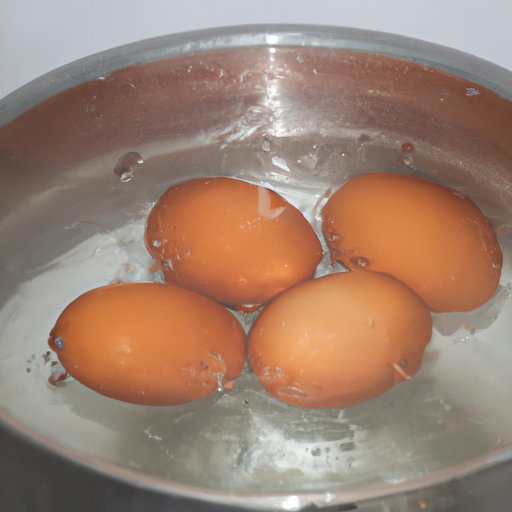
How Long Do You Boil a Hard-Boiled Egg?
Boiling a hard-boiled egg might seem like a simple task, but achieving the perfect egg can be challenging. The difference between an overcooked egg with a dry, rubbery texture and a soft, creamy-yolked egg can be just a matter of seconds. In this article, we will explore different approaches to boiling eggs, from recipe-based methods to scientific approaches. We will also provide tips on avoiding common mistakes and creatively serving hard-boiled eggs.
Recipe Approach
To make a perfect hard-boiled egg using the recipe approach, you will need fresh eggs, a pot with a lid, and water. Here are the steps:
- Place the eggs in a single layer in the pot and cover with cold water.
- Bring the water to a rolling boil.
- Remove the pot from heat and cover with the lid.
- Let the eggs sit in the hot water for 9-12 minutes, depending on the desired level of doneness.
- Remove the eggs from the pot and place them in cold water to stop the cooking process.
- Peel and enjoy!
Common mistakes people make when boiling eggs include using old eggs, not using enough water, or overboiling the eggs. To avoid these mistakes, use fresh eggs, enough water to cover the eggs by at least an inch, and set a timer to avoid overcooking.
Science Approach
Boiling an egg involves a chemical reaction between the heat and the egg white proteins, which coagulate and trap the yolk. The longer the egg is cooked, the more set the yolk becomes.
To achieve the perfect hard-boiled egg using a scientific approach, you should consider the temperature and time required for boiling. According to culinary experts, the optimal temperature for boiling an egg is 180°F, and the recommended time is 11-12 minutes for medium-sized eggs.
To ensure that the eggs are cooked evenly, it’s essential to start with room temperature eggs and to let them come to a gentle boil slowly. This helps to avoid cracking the eggs and to yield more consistent results.
Time-Saving Approach
For busy cooks looking to save time, pressure cookers and egg cookers can be effective alternatives to traditional boiling methods. These devices can cook eggs quickly, and some even allow you to cook multiple eggs at once. When using a pressure cooker or an egg cooker, you’ll need to adjust the timing according to the manufacturer’s instructions, as cooking times can vary depending on the device.
However, keep in mind that this approach can have drawbacks. Pressure cookers can cause eggs to crack, and egg cookers can lead to uneven cooking. Additionally, many people enjoy the meditative and sensory process of boiling eggs, and may prefer traditional methods despite the convenience of using other devices.
Health Approach
Boiled eggs are a nutritious and low-calorie snack or ingredient in a variety of dishes. They’re a good source of high-quality protein, vitamins, and minerals, and can help to promote satiety and weight loss. However, boiling eggs for too long can cause nutrient losses.
To cook eggs for optimum health, it’s best to avoid overcooking and to cook only until the yolks are set. Overcooking may destroy some of the nutrients and result in the formation of harmful compounds. Additionally, it’s essential to wash your hands and cookware carefully when handling eggs to avoid foodborne illness.
Creative Approach
Hard-boiled eggs are versatile ingredients that can be used in many dishes, from salads to sandwiches to appetizers. They can also be creatively decorated and presented for special occasions or as a fun snack.
Here are some ideas for serving boiled eggs:
- Add them to a green salad for a boost of protein and flavor.
- Mash the yolks with mayonnaise and spices to make a tasty egg salad.
- Top with avocado and tomatoes for a healthy breakfast dish.
- Serve sliced eggs with pickled spices or soy sauce for a unique, savory snack.
If you’re looking for a fun way to decorate boiled eggs for Easter or other occasions, consider using food coloring, stickers, or natural dyes made from beets, turmeric, or blueberries.
Conclusion
Boiling a hard-boiled egg can seem like a simple task, but achieving the perfect egg takes some skill and knowledge. From recipe-based methods to scientific approaches and time-saving devices, there are many ways to boil an egg. By following the tips and techniques in this article, you can make boiled eggs that are appealing, delicious, and nutritious.




